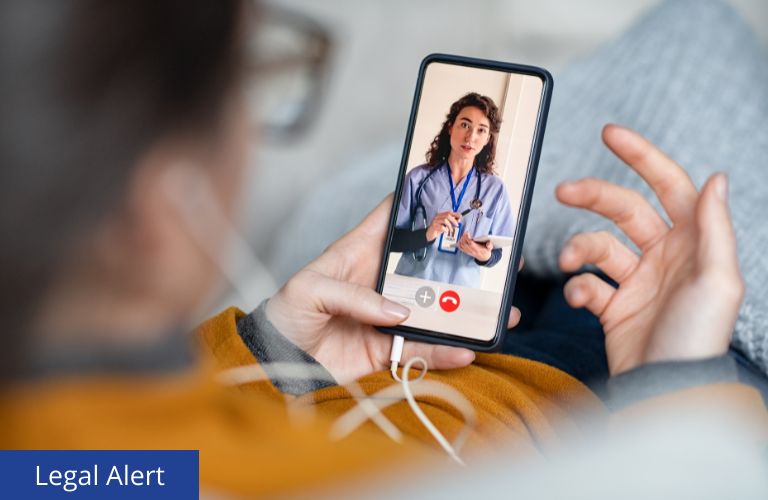
The U.S. Government is warning health care practitioners to be on the lookout for fraud in connection with companies that offer products and services using telemedicine.
On July 20, 2022, the U.S. Department of Health and Human Services Office of Inspector General issued a rare Special Fraud Alert advising practitioners to exercise caution when entering into arrangements with purported telemedicine companies.[1] The Alert was issued the same day that the U.S. Department of Justice announced criminal charges against 36 defendants in 13 federal districts across the United States for more than $1.2 billion in alleged fraudulent telemedicine, cardiovascular, and cancer genetic testing and durable medical equipment (DME) schemes.[2] Taken together, these two events point to a likely increase in government enforcement actions involving telemedicine.
There are a number of “red flags” that may cause the Government to scrutinize arrangements with telemedicine companies, but they all focus on two main themes: kickbacks and dubious or nonexistent medical necessity. Generally speaking, it is illegal to pay practitioners in return for referring patients for products and services; that is a kickback. In addition, all products and services billed to federal health care programs-and private insurance-must be “medically necessary,” which means the practitioner must conduct an examination or meaningful assessment of the patient before prescribing or ordering a product or service.
The Alert contains an illustrative list of suspect characteristics related to practitioner arrangements with telemedicine companies which, taken together or separately, could suggest an arrangement that presents a heightened risk of fraud and abuse.
- The purported patients for whom the practitioner orders or prescribes items or services were identified or recruited by the telemedicine company, telemarketing company, sales agent, recruiter, call center, health fair, and/or through internet, television, or social media advertising for free or low out-of-pocket cost items or services.
- The practitioner does not have sufficient contact with or information from the purported patient to meaningfully assess the medical necessity of the items or services ordered or prescribed.
- The telemedicine company compensates the practitioner based on the volume of items or services ordered or prescribed, which may be characterized to the practitioner as compensation based on the number of purported medical records that the practitioner reviewed.
- The telemedicine company only furnishes items and services to Federal health care program beneficiaries and does not accept insurance from any other payor.
- The telemedicine company claims to only furnish items and services to individuals who are not Federal health care program beneficiaries but may in fact bill Federal health care programs.
A Special Fraud Alert is a “once-in-a-blue-moon” event that health care providers should take very seriously. If ever there was a time for practitioners and health care facilities to review the elements of their business that involve telemedicine to ensure compliance with the law, this is it. Whether a provider bills federal health care programs or not, the government’s focus on telemedicine is on the rise.
[1] The Special Fraud Alert can be found here: https://oig.hhs.gov/compliance/alerts/
[2] https://www.justice.gov/opa/pr/justice-department-charges-dozens-12-billion-health-care-fraud, last accessed July 29, 2022.

